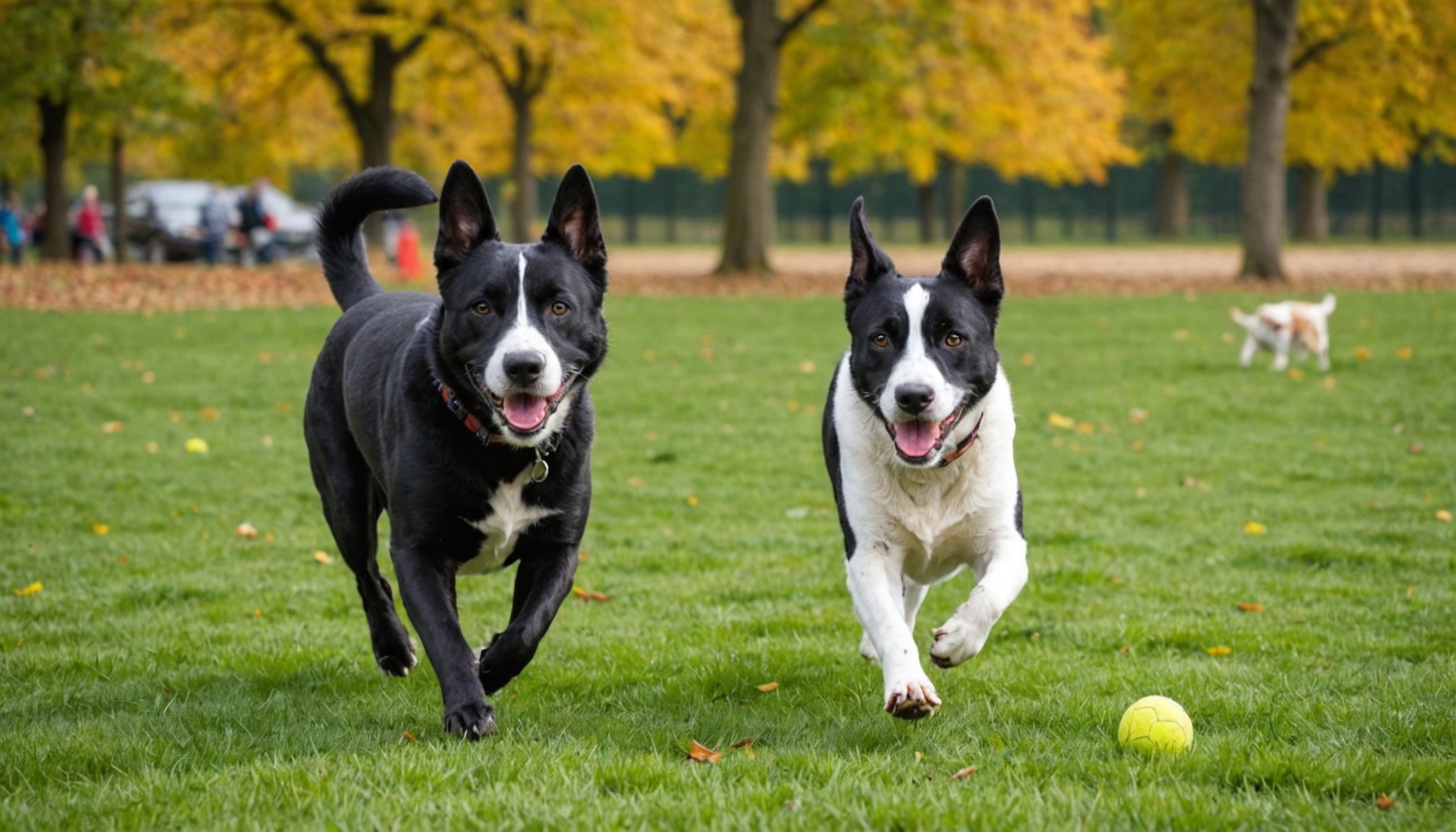How UK Dog Parks Support Your Dog’s Social Growth
UK dog parks play a crucial role in fostering healthy social interactions among dogs, significantly contributing to their pet socialization. These designated spaces provide an ideal environment where dogs meet and engage freely, helping them develop essential social skills that reduce anxiety and aggression.
Regular visits to UK dog parks encourage dogs to encounter diverse behaviors in controlled settings. This exposure enhances their confidence and adaptability, translating into better behavior at home and in public spaces. The positive dog behavior benefits include improved communication, reduced territorial disputes, and increased mental stimulation.
This might interest you : How do I crate train my dog effectively without causing them stress or anxiety?
Structured pet socialization in these parks is especially important for domestic dogs that might otherwise have limited contact with other animals. By interacting regularly in UK dog parks, dogs learn appropriate play techniques and boundaries, building friendships that enrich their emotional well-being. These environments also offer owners opportunities to observe and correct behavior, reinforcing positive social habits.
The social growth fostered in UK dog parks is foundational for a balanced, happy pet, supporting healthier relationships both with other dogs and people.
Topic to read : How can you help your dog adapt to the UK weather changes?
Typical Social Interactions and Play at UK Dog Parks
Social play and canine communication in communal spaces
UK dog parks are vibrant hubs where dog interaction flourishes through various forms of peer play and communication. Common social play types include chasing, wrestling, and play-bowing—each serving as a non-threatening signal to initiate or continue friendly exchanges. These behaviors enable dogs to practice important social skills within a safe environment.
Park settings offer dogs ample opportunity to observe and interpret different social cues. For instance, a raised paw or subtle growl can signal a dog’s intention, while tail wagging often expresses friendliness. Regular exposure to diverse dogs in UK pet communities sharpens dogs’ ability to recognize and respond appropriately, enhancing their social adaptability.
The variety of breeds and temperaments encountered regularly ensures dogs learn to navigate different communication styles. This ongoing interaction fosters confidence and reduces anxiety during encounters, leading to more harmonious play. In essence, UK dog parks act as natural social classrooms, enriching canine behavior through repeated, real-world experience with peers.
Expert Insights on Socialization at Dog Parks
Understanding how dogs interact at parks is crucial for their well-being. Veterinary recommendations consistently emphasize supervised socialization to reduce aggression and anxiety. UK veterinarians stress that social outings must be gradual, tailoring exposure based on a dog’s temperament and history. This personalized approach prevents overstimulation and fosters positive experiences.
Pet behavior studies reveal that dogs benefit from controlled interactions. Research highlights that well-managed dog parks enhance communication skills and confidence in unfamiliar environments. Experts warn, however, that unsupervised playtime can escalate conflicts, underscoring the need for attentive owners.
Notable dog socialization research advocates structured introductions. Trainers recommend short, frequent visits over prolonged exposure, allowing dogs to acclimate at their own pace. This method aligns with veterinary advice on maintaining a balance between play and rest.
To maximize the social benefits of park visits, experts advise owners to observe body language closely, intervene early if stress signals appear, and encourage calm, friendly greetings. Applying these principles from expert advice ensures dog parks remain enriching spaces for all pets involved.
Tips for Positive Socialization Experiences in UK Dog Parks
Navigating UK dog parks successfully starts with preparing your pet before arrival. Ensure your dog is comfortable with other dogs by introducing them gradually to new scents and sounds, or attending controlled socialization classes. This foundation helps your dog feel less overwhelmed and ready to engage positively.
Managing and redirecting challenging behaviours is essential. If your dog shows signs of aggression or anxiety, calmly intervene by using distraction techniques such as toys or commands like “sit” or “come.” Consistent behaviour guidance from the owner can prevent escalation and foster better social skills.
For inclusive and safe interactions, encourage respectful play by observing body language signals, such as relaxed posture and play bows. Prompt owners to supervise their dogs closely, avoiding overcrowding or high-energy clashes common in busy UK dog parks. Teaching your dog to wait patiently and respond to your cues also supports harmony in diverse group settings.
By combining careful preparation, behaviour management, and mutual respect among dogs and owners, you create an enriching environment. These dog park tips support not only enjoyable playtimes but also well-rounded socialization strategies tailored for UK settings.
UK Rules and Considerations for Dog Park Socialization
Navigating UK dog park rules is essential for positive socialization and safety. Most parks require dogs to be under control, often mandating leashes unless in designated off-leash areas. Owners must clean up after their pets, reflecting a core tenet of responsible pet ownership. Failing to comply can risk fines or removal from the park.
Safety guidelines stress monitoring dogs’ behavior closely to prevent aggressive encounters, promoting peaceful interactions. While many parks encourage socializing, it’s crucial to respect other dogs’ boundaries to maintain a harmonious environment.
Regional variations exist across the UK. For example, some councils enforce stricter leash laws in urban parks, while rural areas may offer larger off-leash zones. Being aware of local regulations prevents unintentional infringements and ensures a smoother visit.
To be responsible in public dog parks, owners should:
- Confirm park-specific rules before visits
- Carry waste bags and water for their dogs
- Supervise interactions attentively
- Consider their dog’s temperament in group settings
Understanding and respecting these UK dog park rules guarantees a safer, more enjoyable experience for dogs and owners alike, enhancing socialization opportunities while upholding community standards.


